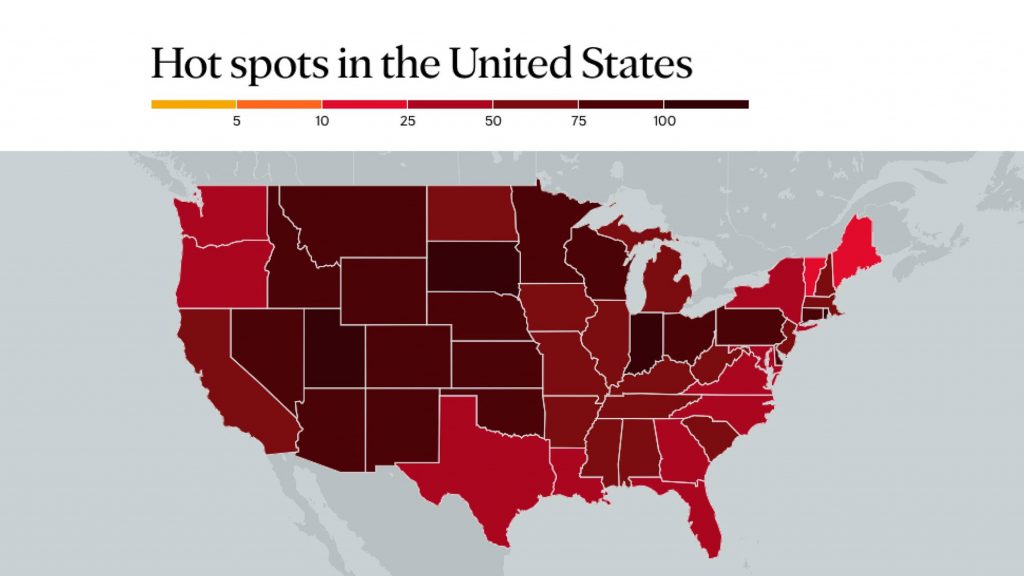
DEAR MAYO CLINIC: We typically host several family members and their children in our home for a visit each December. But due to COVID-19 we have decided to avoid social encounters. How can I tell my siblings that they and their children can't come without creating a rift? Also, do you have any advice on politely declining holiday invitations?
ANSWER: The holidays can be a stressful time for many. Although in the past the holiday season may have included trips to crowded shopping malls; travel to visit family; and multiple gatherings with co-workers, neighbors and friends to eat, drink and be merry, this year is different amid the ongoing COVID-19 pandemic.
Due to COVID-19, many of the things that people ordinarily do this time of year are not a good idea from a public health standpoint. To reduce the community spread of COVID-19, it is recommended that everyone continue to use masks, exercise proper hand hygiene, limit travel, avoid congregating in groups, and maintain appropriate social distancing.
Taking these actions will reduce the risk for COVID-19 transmission. However, doing so also may increase the risk of conflict for some, especially when family members and friends do not agree on the seriousness of the pandemic.
Here are some tips to consider for minimizing holiday stress when respectfully having these conversations during the holidays:
- Make plans based on your values.
When you act according to your values, you can feel content with your choices. Take time to reflect on what is important to you. Values can conflict with each other, such as maintaining health and safety versus spending time with family and friends. At times, compromises can be found. Other times, choosing one value over another may be necessary.
- Try to have the conversation early.
If you've decidef to take a pass on traveling to see loved ones or having them come to you, the sooner you have this conversation, the better. If you have a partner, make sure that the two of you are on the same page and can present your decision as a united front. Who knows, you might be pleasantly surprised with how understanding others can be with your decision. But that may not always be the case.
- It's not a debate.
Your family or friends may challenge or criticize your decision to choose safety over congregating this holiday season. Do not feel obligated to defend your position, as it's a choice you have made based on your values. Keep the message simple and make sure it ends in a period. For example: "I love you. I would like to be with you, but I am choosing to stay at home this year." If you get pushback, repeat this same phrase to avoid getting drawn into a debate. In the end, while they may be disappointed in the situation or circumstances, they may end up accepting that this is how the holidays will have to be this year.
- Keep it simple.
You don't owe your family or friends detailed explanations. Keep your responses simple. For instance, if you are declining an invitation to a neighborhood party, you could say: "We are not available that evening. I'm sorry we'll miss the festivities."
- Be flexible and open to doing things differently.
There may still be ways to connect during this holiday season. Brainstorm about what opportunities you have to hold a virtual get-together or identify creative ways to socially distance. Consider having pickup or drop-off food options to share a meal, where each person takes a course to cook, but everyone eats at his or her own home. Another idea is to have each person bake and deliver a sweet treat for a contactless cookie exchange. If there is one thing that has been learned in 2020, it is figuring out how to be flexible and do things differently.
- Stay optimistic for today and the future.
This has been a challenging year for everyone. Although celebrating the holidays will look different this year, it is important to remember that choices made today will help everyone in the future. Just because things are different this year does not mean that it's a disappointment. It's just different.
As you find new ways to navigate the holiday season, try to remain positive. Eventually, everyone will be able to get back together to celebrate the season with the usual traditions, but maybe some new traditions will have been learned along the way. — Olivia Bogucki, Ph.D., Psychology, Mayo Clinic, Rochester, Minnesota
Learn more about: Tracking and trending COVID-19

Information in this post was accurate at the time of its posting. Due to the fluid nature of the COVID-19 pandemic, scientific understanding, along with guidelines and recommendations, may have changed since the original publication date.
For more information and all your COVID-19 coverage, go to the Mayo Clinic News Network and mayoclinic.org.







